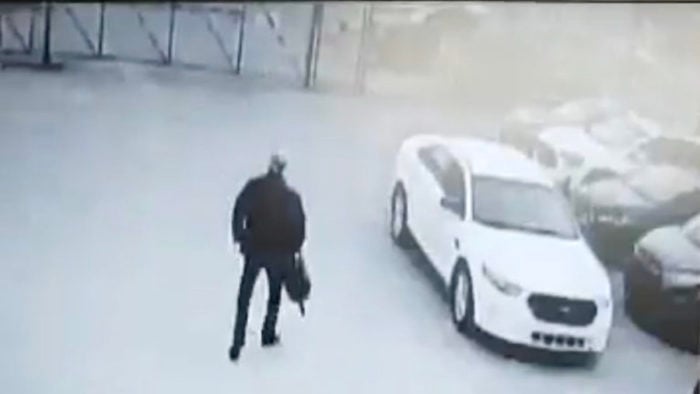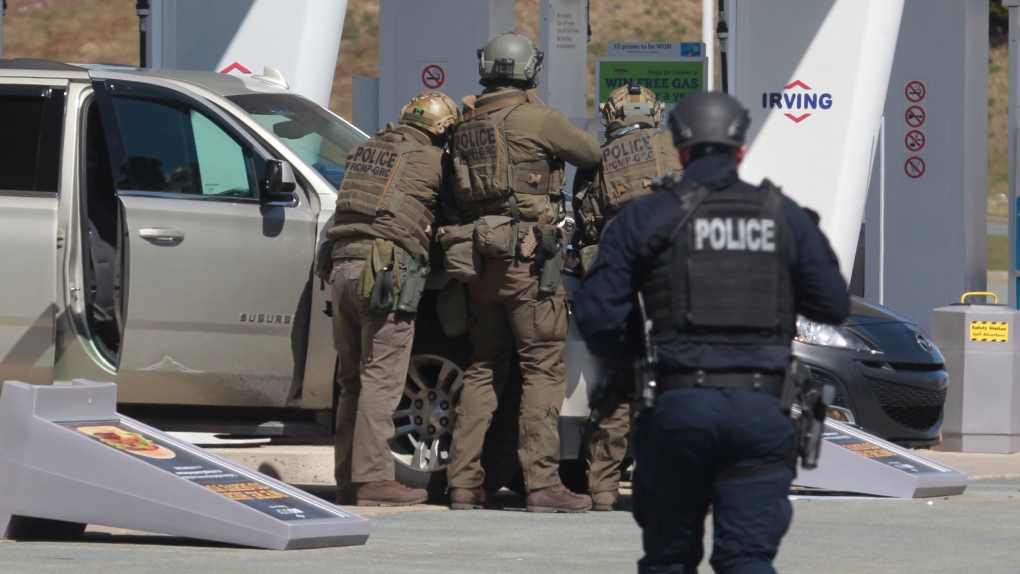- Reaction score
- 1,332
- Points
- 1,260
Updates here,So what is the status of the Royal Commission?

Updates
Read Updates from the Commissioners, Community Notices and other information about the progress of our work throughout the inquiry.

Updates here,So what is the status of the Royal Commission?

Yeah, it’s nonsense. That’s not how confidential informants are paid, nor would a CI see that kind of money. An agent may, but they get outed in court, and in any case, they wouldn’t be picking up their pay at a brinks place.
Canadian Mass Shooter May Have Been RCMP Agent, Evidence Suggests
Compelling evidence, largely and strangely ignored by the mainstream Canadian news media, suggests that the gunmen responsible for the largest mass shooting in Canadian history, Gabriel Wortman, was likely a confidential agent, or in some way affiliated with the Royal Canadian Mounted Police (RCMP).funker530.com
Interesting item to pop over my news feed from down south
Public trust in the inquiry investigating the mass shooting in Nova Scotia almost two years ago would be undermined if the RCMP officers involved are not compelled to testify, legal experts say.
Last week, the commission of inquiry came under intense scrutiny when the RCMP’s union argued the 18 officers would be “re-traumatized” if they are forced to relive April 18-19, 2020, when a man disguised as a Mountie fatally shot 22 people during a 13-hour rampage.
Police officers routinely give evidence under oath at trials and public inquiries, even when the subject matter is profoundly disturbing and graphic. But the federal-provincial inquiry in Halifax, which started hearings last month, has adopted a novel, “trauma-informed” approach.
You'd think the NPF would have a vested interest in getting answers through the commission that would help them improve conditions for their members.It's crap like this that makes peoples tin foil hats more tin foily

Yes, but under oath or not, they still have a legal requirement to be truthful in any of their statements made or reports filed in the course of their duties, which this definitely is. Unless there’s reason to doubt their prior statements - which should be corroborated by the reports they all would have also submitted for the criminal investigation - I don’t see why there would be a need to put them up there to have to relive this yet again. They’ve each had to make full accountings of this already, and I expect their notes would have also been submitted to the inquiry. This would all be further corroborated by recorded radio audio, 911 calls, calls by police to the Operational Communications Centre, dispatch logs, in car computer/GPS data, etc etc.Does "unsworn interviews" mean they were not under oath for lack of a better word?
You'd think the NPF would have a vested interest in getting answers through the commission that would help them improve conditions for their members.
I will admit that an earlier article I'd read on this lacked the context required for a fully informed rebuttal. While I agree in this context, there may be need for some clarification of statements made and a blanket assertion that members should not be compelled to testify is excessive.They do, and they’ve been supportive of the inquiry throughout. They also have a responsibility to advocate for the health and well being of the members they represent. In this case, those two things are not inconsistent given that all the information sought is already available and has been provided.
In Ontario, for example, during investigations into police use of force, officers are not required to give statements or provide their notes as of right.Since when do the police get a choice whether to testify or not? This disturbs me.
Since when do the police get a choice whether to testify or not?
In Ontario, for example, during investigations into police use of force, officers are not required to give statements or provide their notes as of right.
Under Ontario law, subject officers — like anyone suspected of a crime — have the right to remain silent and cannot be compelled to speak to the SIU, despite calls for police officers to be held to a higher standard given their duty to protect.
The regulations governing police officers and their duty to speak with the SIU are complicated. In any investigation, officers are broken down into two categories: witness officers who saw what happened, and subject officers who are themselves under investigation.
Under the current legislation, subject officers cannot be compelled to speak to the SIU.
You are 100% correct. I omitted the word, subject officers.Regarding "subject officers" and "witness officers" in Ontario,
Thanks. It's weird their is an option not to be under oath when givng a testimony. I was under oath for a BOI even though I'm pretty sure I need to be truthful in any of my statements. Maybe it's some kind of nuance.Yes, but under oath or not, they still have a legal requirement to be truthful in any of their statements made or reports filed in the course of their duties, which this definitely is. Unless there’s reason to doubt their prior statements - which should be corroborated by the reports they all would have also submitted for the criminal investigation - I don’t see why there would be a need to put them up there to have to relive this yet again.
I've read of a few cases where police refused to submit their notes for incidents, hopefully that isn;t the case here.They’ve each had to make full accountings of this already, and I expect their notes would have also been submitted to the inquiry.
Most and Should leaves a bit of room for interpretation. This means some officers may have not been interviewed.Most of the RCMP officers who responded to the killings have already provided extensive, unsworn interviews to commission counsel, she said, adding that unless it's clear something is missing, that should suffice.
The strange thing about the case is the bizarre completely groundless conspiracy nonsense surrounding the case, not even mildly in the realm of reality. Some of which they printed in national magazines.